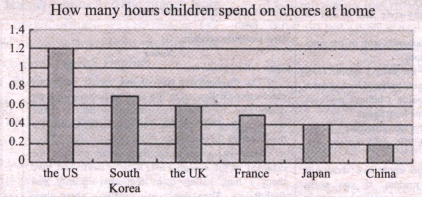题目内容
Scientists sometimes use placebos(安慰剂) to test the effectiveness of medicines. They give one group of people the real medicine and another group a placebo which looks exactly like the medicine but is not. It doesn’ t contain any healing elements(成分) .The people don't know which medicine they,re taking. The medicine has to produce better results than the placebo to prove its effectiveness. However,sometimes the people taking the placebo experience improvements in tAeir health. Scientists call this the “piacebo effect”.
For years,researchers have studied the placebo effect in terms of physical health. However,the findings of a research team in Sweden have attracted people's attention. First the researchers showed a group of people unpleasant pictures and asked them to rank how they felt after seeing the pictures. They gave the highest number to the pictures that gave them the worst feelings. The researchers then gave the people a calming drug and told them that it would reduce their unpleasant feelings. When the team showed the pictures again,the people said they felt much calmer.
The following day,the researchers showed the people unpleasant pictures again,but this time they gave them a placebo (it was nothing but salt and water) instead of the calming drug without telling them the truth. After taking the placebo,the people's ratings still changed. Their unpleasant feelings reduced by almost 30%.
So does that mean doctors could use placebos to treat worry or anxiety? Dylan Evans,who has written books about the placebo effect,said ,“Doctors have a duty to care for their patients. But they also have a duty to tell the truth. Placebos seem to pull these two duties in opposite directions."
Research on the placebo effect has focused on the relationship of mind and body. Many scientists think that a belief that something is helpful actually makes it become helpful. If a person expects a pill to do something,then possibly the body's own chemistry can cause effects similar to what medication might have caused. Increasingly,people are looking at ways of treating the “whole person” 一 not just the body.
25. According to Paragraph 1 ,placebos.
A. are a kind of special medicine
B. perform better than medicines
C. make no difference to patients' general health
D. are used to prove the effectiveness of medicines
26. What does the experiment conducted by the Swedish team tell us?
A. Placebos can improve physical health.
B. Placebos help change people's character.
C. Placebos can reduce emotional discomfort.
D. Placebos make people calmer than drugs do.
27. What's Dylan Evans,attitude towards the use of placebos for treating anxiety?
A. Negative. B. Approving.
C. Cautious. D. Uncaring.
28. What can we learn from the last paragraph?
A. The body's own chemistry can be harmful.
B. Doctors will focus more on treating the body.
C. People's expectation influences their recovery.
D. Mental health is more important than physical health.
(健康)
本文是说明文。文章介绍了安慰剂效应。
25. D.啤节理解题。由文章开头的Scientists sometimes use placebos to test the effectiveness of medicines 可知。
26. C.推理判断题。申第三段末的After taking the placebo,the people* s ratings still changed. Their unplfeasant feelings reduced by almost 30% 可推 断,安慰剂可以减轻情感方面的不适。
27. A.推理判断题。由倒数第二段中的they also have a duty to tell the truth. Placebos seem to pull these two duties in opposite directions 可知, Dylan Evans认为使用安慰剂治疗焦虑的患者侵 犯了患者的知情权。据此可推断,他反对用安 慰剂治疗焦虑。
28. C.细节理解题。由最后一段中的a belief that something is helpful actually makes it become helpful. If a person expects a pill to do something,then possibly the body's own chemistry can cause effects similar to what medication might have caused可知,人们对药物 效果的期望会影响他们的康复。

 轻松暑假总复习系列答案
轻松暑假总复习系列答案